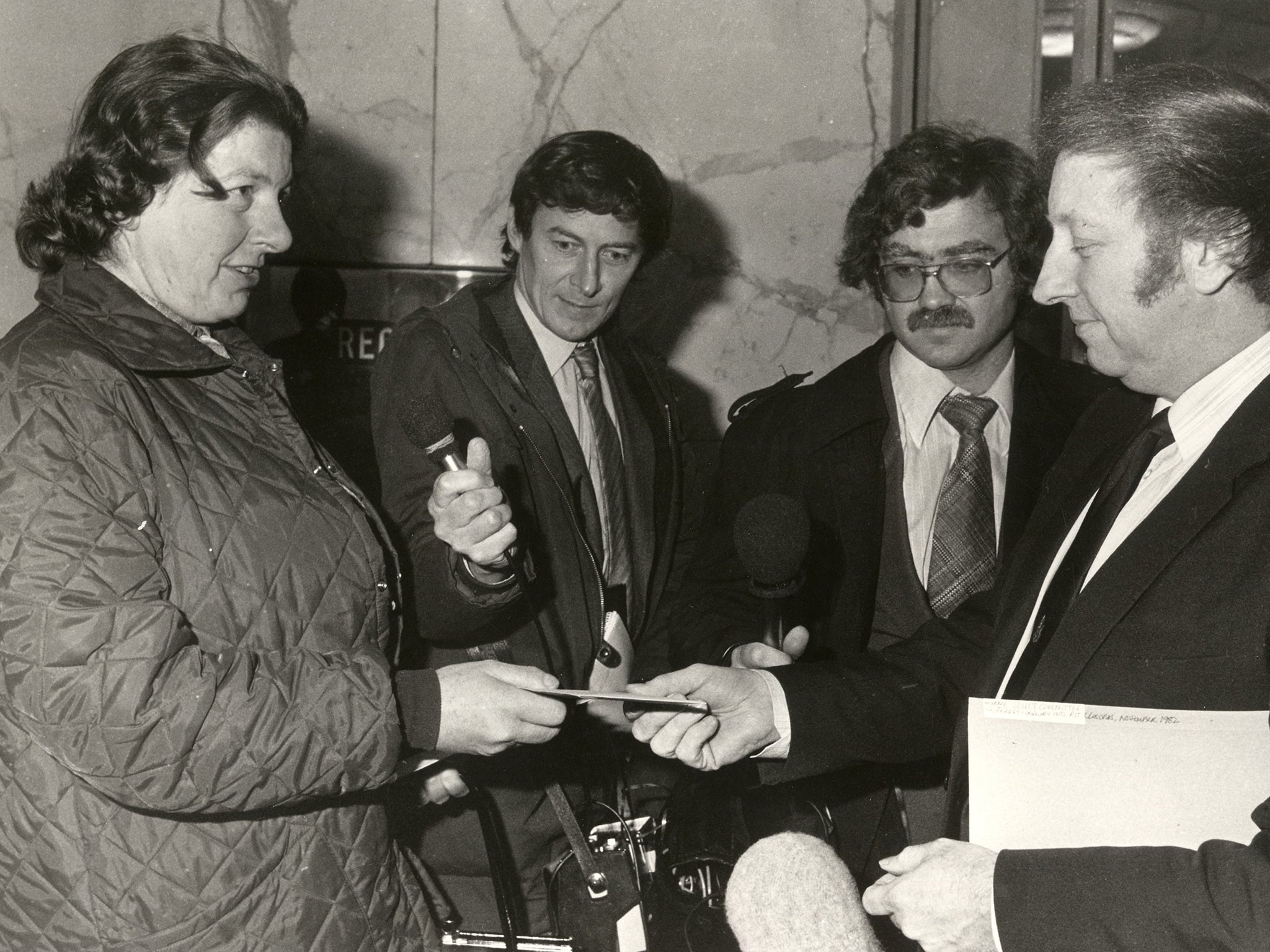Mary Frampton: Head of the Sergeant at Arms’ office in the House of Commons of whom most MPs remained in awe

Your support helps us to tell the story
This election is still a dead heat, according to most polls. In a fight with such wafer-thin margins, we need reporters on the ground talking to the people Trump and Harris are courting. Your support allows us to keep sending journalists to the story.
The Independent is trusted by 27 million Americans from across the entire political spectrum every month. Unlike many other quality news outlets, we choose not to lock you out of our reporting and analysis with paywalls. But quality journalism must still be paid for.
Help us keep bring these critical stories to light. Your support makes all the difference.
In my early days as an MP there were a number of ladies in the Palace of Westminster who would not have been offended had I described them as “tanks” – heavily armoured Panzers with 88mm guns, at that.
The Tynemouth MP Dame Irene Ward was one of the species, the redoubtable Bessie Braddock, MP for the Exchange Division of Liverpool, was another – as was Mary Featherstonhaugh Frampton, who became a daunting presence. Like many of my MP contemporaries, I learned that it was prudent to keep on the right side of Mary – all Westminster knew who she was.
Mary Frampton came from farming stock, and after a series of girls’ schools and a secretarial college she arrived as a shorthand typist in the Committee Office of the Clerk of the Houses Department in 1948. Two years later the then Sergeant at Arms, Brigadier Sir Charles Howard, peremptorily sacked his secretary for coming to work with painted nails. Frampton, on the premises at the right moment, was promoted.
As private secretary she served Sir Charles and his successors General Ivor Hughes and Rear-Admiral Sandy Gordon-Lennox – unkindly, but not wholly unjustifiably dubbed “Booze and Snooze” by the waspish Clerk of the House, Sir Barney Cocks. De facto, for MPs wanting better desk space – it was before most MPs had such a thing as an office – Frampton was the Sergeant at Arms.
Returning to orthodoxy, she served Lt Colonel Sir Peter Thorne, who had been passed over in 1962 because the Duke of Edinburgh had used the Royal Warrant procedure to insist that an Army officer be followed by one from the Navy. In 1977 she was promoted to the leadership of the Sergeant at Arms office.
Chris Moncrieff, veteran correspondent of the Press Association, recalled to me that the lobby pondered who would be brave enough to knock on the door and serve a summons on Sir Charles Villiers, the very grand chairman of British Steel, who had declined to appear before the Select Committee on Nationalised Industries. “When was saw Mary had had her hair done, we knew she had drawn the short straw.”
It was Frampton who also had the task of serving a summons to Arthur Scargill, when the president of the NUM had also refused to come to a Select Committee, eliciting the well-remembered retort, “Does this mean the Tower of London?”
Frampton was also a matron of great personal kindness. A then young Labour MP, a friend of mine, told me that, unused to alcohol, he had imbibed too much during his Trade Union dinner in the House. Seeing him in a bad state in the corridor, Frampton took him by the scruff of the neck, led him to her room and laid him down on her couch under a rug. In the morning she gave him a huge telling-off, but she had probably saved his career. Characteristically, she had returned to the corridor and cleaned up the mess herself.
In 1988 she retired from the Commons and became a small-scale market gardener, joining the National Farmers Union. The retiring Clerk of the House, Sir Robert Rogers, remembers Frampton, who was made an MBE, as “bluff and fair-dealing, a joy to work with.” But the last word must go to Walter Harrison (who died in 2012), Labour’s Deputy Chief Whip, and responsible for the domesticities of Parliament. “Mary is a brick,” he said.
Mary Featherstonhaugh Frampton, Warrant Officer of the House and Clerk in Charge of the Sergeant at Arms Office, House of Commons: born 16 February 1928; MBE; died 28 August 2014.
Subscribe to Independent Premium to bookmark this article
Want to bookmark your favourite articles and stories to read or reference later? Start your Independent Premium subscription today.
Join our commenting forum
Join thought-provoking conversations, follow other Independent readers and see their replies
Comments